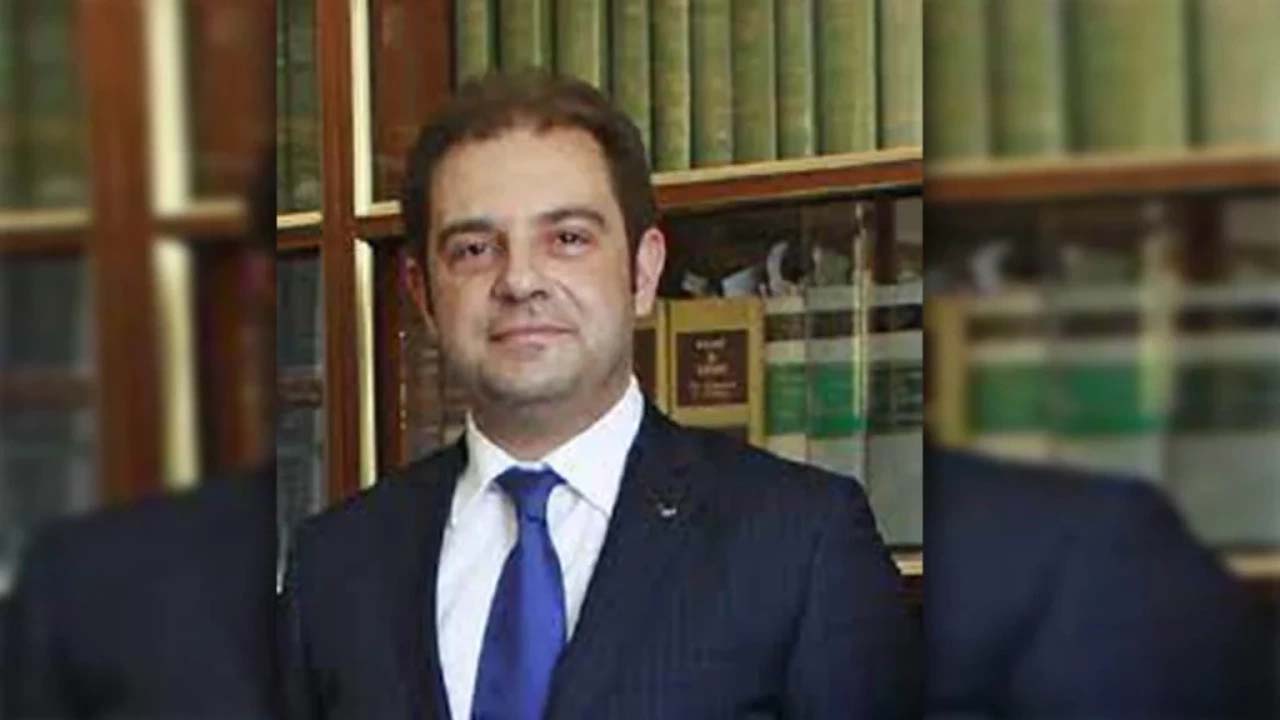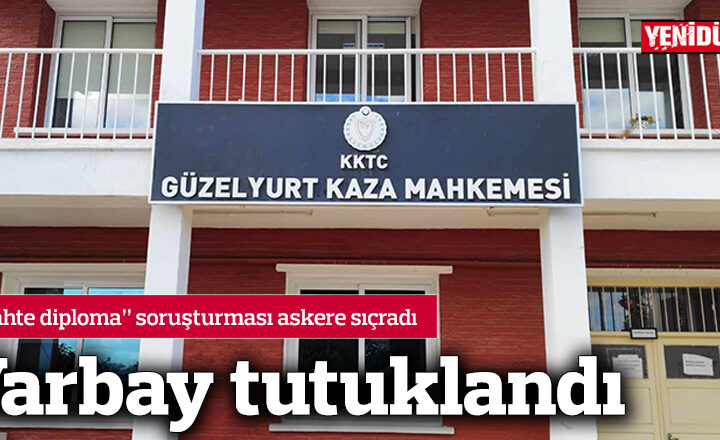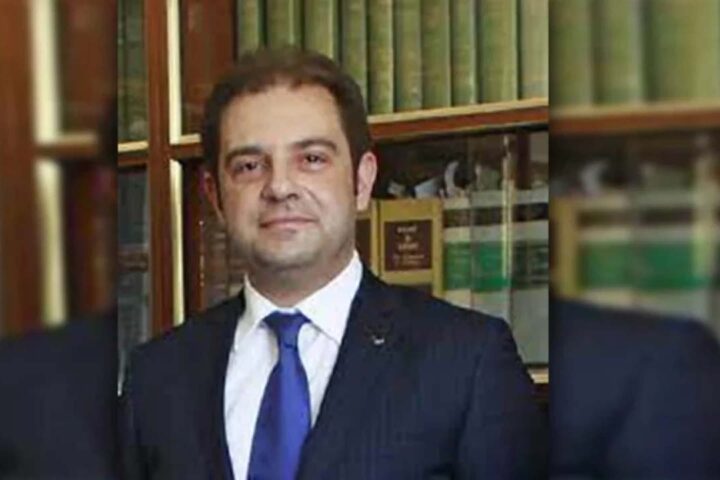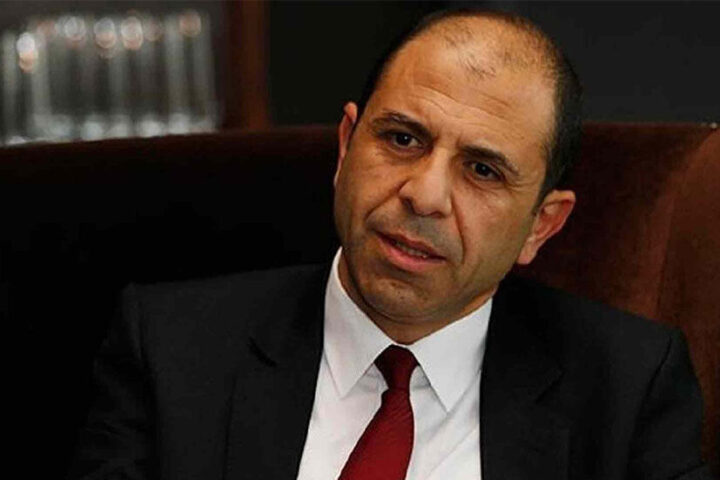Turkish Cypriot lawyer Akan Kursat denied on Friday all charges of embezzlement of Greek Cypriot-owned properties in the occupied north 20 years ago and was released on bail, to appear in a Nicosia court at the end of this month.
He faces a total of 20 charge including conspiracy to commit a felony, conspiracy to commit a misdemeanor, misappropriation of property by false representations, illegal possession and use of land registered to another, attempt to embezzle property by false representations, and fraud in the sale of property.
If found guilty, he faces imprisonment of up to seven years. The trial will begin on Thursday, February 29.
Kursat was released on bail, with €10,000 paid in cash and a further €65,000 in bank guarantees issued by banks outside the occupied north or Turkey.
The prosecution wanted the defendant to appear twice a month. Defence lawyer Rikos Mappourides told the court that Kursat will appear at the Ayios Dhometios police station every first and third Monday of the month.
The Turkish Cypriot lawyer, whose family law firm is known for representing British drug baron Gary Robb, who was behind a multi-million development that swindled buyers from Britain, was arrested in Rome on new year’s eve on an international warrant issued in 2007.
He was in Italy on holiday with his wife Fazilet Ozdenefe, deputy speaker of the Turkish Cypriot assembly and an MP for the left-wing Turkish Republic Party (CTP).
Cypriot authorities requested his extradition, marking the first time a Turkish Cypriot has been arrested abroad for such a case.
Kursat reportedly consented to the extradition on February 1. He arrived in Cyprus late on Thursday, accompanied by Republic officers, and appeared in Nicosia District Court on Friday morning.
According to the case file opened by the police in 2005, the Turkish Cypriot lawyer is accused of conspiracy to commit a crime, illegal possession or use of land belonging to another person, obtaining goods through false representations, among other charges.
The allegations suggest that the case is related to the misappropriation of properties in the northern part of Cyprus, particularly in the Klepini area near Kyrenia, in deals
Kursat’s arrest has opened a Pandora’s Box, as he initially said he would not be safe if held in the Nicosia central prisons, where a Turkish Cypriot inmate was killed two years ago, while politicians in the occupied north claim this is a witch hunt and aimed at undermining the UN-sponsored peace talks between the two communities.
It has also turned the spotlight on the weakness of the government machine, that reportedly renewed Kursat’s Cypriot passport, despite an arrest warrant pending for nearly two decades, using which he allegedly travelled to Italy.
European arrest warrants were previously issued against Kursat and his father, Talat Kursat, for their involvement in the sale of Greek Cypriot properties during 2004-2005.
British con man Gary Robb’s company allegedly attempted to illegally sell property belonging to Greek Cypriots to foreigners, resulting in legal action by investors who claimed extortion through misrepresentation.
Drug trafficking
Robb, a convicted British drug dealer, had started building luxury villas on Greek Cypriot land in Kyrenia in 2004-2005, but was forced to abandon his projects after he faced legal troubles and imprisonment in the UK for drugs trafficking.
He was building some 335 luxury villas as part of the Amaranta Valley Estate on Greek Cypriot-owned land.
British police estimated at the time that approximately 400 Britons incurred losses exceeding €40 mln in deals with AGA Development.
It is alleged that Robb received weekly sums ranging between £5,000 and £10,000 from the drug trade in England, and he reportedly directed this money to the northern part of Cyprus.
He was sentenced to five years by a UK court, with Cyprus requesting his extradition in 2011, following the issuance of a European arrest warrant.
A court in the government-controlled areas sentenced Robb to 11 months imprisonment, but after that he was extradited back to the UK.
Earlier, Britons William George and Eleanor Barker Rene Alcock, who purchased a villa in Klepini in 2005 from AGA Developments Ltd, lodged a complaint against Talat Kursat in Turkish Cypriot courts, leading to a decision on December 24, 2018.
The plaintiffs contended that the funds they had sent to Talat Kursat, the lawyer representing the company and Robb, for their mansion’s purchase, were never transferred to them.
Instead, Kursat allegedly retained the money in his personal account. Despite the plaintiffs’ persistent appeals, the sum of £64,755 was never recovered.
The court had decided that Talat Kursat misappropriated the money or transferred it to his own bank account.
Cyprus police said on Friday that there are outstanding arrest warrants for others linked to Aga Developments: contractor Tuncel Tahir Soykan and construction engineer Kutsal Tokatlioglu.
Cross-border mafia
Meanwhile, a prominent Turkish Cypriot politician claimed that the mafia on both sides of the divide in Cyprus seem to be cooperating to sell off Greek Cypriot properties in the Turkish occupied north to foreigners.
People’s Party leader, and former Cyprus problem negotiator, Kudret Ozersay, huighlighted in a recent interview the surge in property sales to foreigners in the north, suggested that a legal loophole allows Turkish Cypriot lawyers to act as intermediaries, facilitating unrestricted property acquisitions by foreign individuals.
He pointed to a specific legal measure for Turkish Cypriots, who receive Greek Cypriot land as compensation for losses incurred in the state-controlled areas after the Turkish invasion and division in 1974.
Ozersay also expressed concern about practices in state-controlled areas, where Turkish Cypriots are denied access to their properties due to the custodianship law enacted by the Republic after 1974.
He emphasised the challenges faced by his family in accessing their property in the south.
“My family has property in the south, but cannot enjoy it because of the custodianship law on Turkish Cypriot properties, which says until the solution of the Cyprus problem it is basically impossible for me to get that land, unless I move to the south,” he said.
Ozersay also questioned the allocation of Turkish Cypriot properties managed by the Turkish Cypriot Property Management Authority in the south, noting instances where they were given to Greek Cypriot non-refugees, sublet, or utilised by the state for infrastructure development.
Addressing potential solutions, Ozersay pointed to the existence of the Immovable Property Commission (IPC) in the north handing out compensations to Greek Cypriots for the loss of their properties.
As he argued, despite its challenges, it is recognised by the European Court of Human Rights as an effective domestic remedy.
The Cyprus Bar Association has also initiated investigations into certain members and a company allegedly involved in property transactions in the north, including those connected to Akan Kursat.










